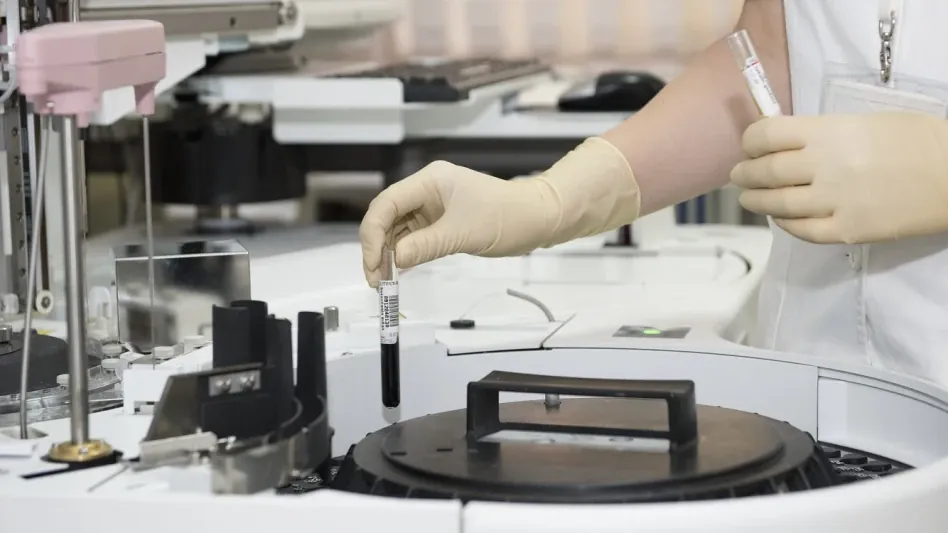Contract research and testing laboratories operate in a demanding environment where they must balance the expectations of their clients with the complexities of regulatory requirements, all while managing multiple projects and costs efficiently. In this competitive and ever-evolving field, the deployment of a robust laboratory information management system (LIMS) is essential for managing various testing processes, whether conducted in-house or outsourced. An advanced LIMS equips laboratories to deliver reliable and reproducible data quicker, with comprehensive reporting and customizable configurations. The right informatics solution helps laboratories to overcome key operational challenges and fosters organizational growth.
Meeting Client Expectations and Streamlining Workflows
Adapting to Increasing Demand and Evolving Client Expectations
A major challenge for contract research and testing labs is meeting the increasing demand and evolving client expectations. Faster turnaround times are crucial in a competitive market, giving labs that can streamline their workflows and reporting a significant advantage. The adoption of advanced technologies such as automation, artificial intelligence (AI), and cloud computing helps labs stay agile and meet client demands for real-time updates on analyses and projects. By employing a LIMS solution that offers automated data capture and reduces the potential for human error, labs can hasten the reporting process, manage resources more efficiently, and prevent delays.
Flexibility and efficiency are paramount, and a quality LIMS supports configurable workflows and client communication, facilitating quicker process adaptations and real-time results delivery. With increasing competition and rising client expectations, contract research labs face constant pressure to enhance productivity while maintaining high standards. By leveraging an advanced LIMS, they can streamline their operations and optimize resource allocation to meet these demands effectively. Additionally, configurable workflows allow labs to cater to diverse client needs, ensuring quick turnaround times and improving client satisfaction.
Enhancing Productivity and Collaboration
The pressure to enhance productivity is fueled by factors such as increasing competition, higher client expectations, regulatory scrutiny, and sophisticated high-throughput tools and technologies. The life sciences sector faces particular pressure for faster time-to-market, while the clinical space deals with complex trials that incorporate advanced methods across multiple sites. A comprehensive LIMS addresses these issues by centralizing data management and fostering standardization and collaboration across different departments and locations.
This centralization helps reduce data silos and inconsistencies, ensuring data is consistently stored and easily accessible from a single platform. Enforcing standardized data entry and reporting formats ensures consistency and facilitates the aggregation and analysis of data from various sources. By integrating seamlessly with a lab’s instruments and systems, a LIMS can streamline communication and data sharing, which is essential for collaboration. Standardized methods and procedures also allow for customization, enabling labs to cater to clients with unique project needs effectively.
Ensuring Quality and Compliance
Meeting Stringent Quality and Compliance Standards
Meeting stringent quality and compliance standards is another critical challenge for contract laboratories, especially those working with clients in regulated industries such as life sciences. Labs must ensure that their data is accurate, reliable, and reproducible to build client trust and establish a strong reputation. Achieving these standards requires meticulous record-keeping and ensuring processes are traceable, auditable, and compliant with regulatory standards. Without a comprehensive informatics platform, lab staff must invest considerable time in manual documentation tasks, which can lead to increased operational costs and the risk of human error.
A robust LIMS platform automates data capture and operating procedures, ensuring full traceability and data accuracy by eliminating human error. This automation frees up lab staff to focus on core and complex operations while maintaining high-quality and reliable data. Automating documentation processes not only minimizes errors but also enhances productivity, enabling labs to deliver consistent results swiftly. This reliability is vital for building and maintaining trust with clients, ultimately strengthening the lab’s reputation in the industry.
Integrating Compliance Processes
An advanced LIMS integrates compliance processes and maintains rigorous quality standards to meet varied industry requirements, including laboratory standards like ISO 17025 and ISO 15189 for medical labs, medical device standards (ISO 13485 and 21 CFR Part 820), manufacturing and production standards (GMP), and regulatory compliance for electronic records (21 CFR Part 11). Automating these compliance processes within a LIMS helps labs improve efficiency and build client trust by consistently delivering high-quality data.
By ensuring compliance with various regulatory standards, labs can enhance their credibility and attractiveness in the market. Centralized and automated systems reduce the manual efforts required to maintain compliance and ensure data integrity. The regulatory landscape is constantly evolving, and adhering to these changing standards without a solid informatics foundation can be particularly challenging. Therefore, a LIMS that seamlessly integrates compliance processes provides labs with the necessary tools to stay ahead of regulatory changes and maintain their competitive edge.
Enhancing Cost Efficiency and Scalability
Managing Operational Costs and Skilled Personnel
Enhancing cost efficiency while driving growth poses several challenges, including managing operational costs, recruiting, retaining, and managing skilled personnel, and ensuring their focus on critical tasks rather than manual documentation. Scalability is another challenge for labs looking to expand across multiple sites, as rapid growth can strain existing systems and lead to increased operational complexity and costs. Consistent data quality during growth phases is crucial, with variations in processes and protocols across labs potentially affecting result reliability.
By implementing a comprehensive LIMS, labs can streamline resource allocation and effectively manage their workforce. Automating routine tasks reduces the burden on skilled personnel, allowing them to focus on core operations and innovation. This not only boosts employee satisfaction but also leads to higher productivity and cost efficiency. Standardizing processes and protocols across multiple sites ensures consistent data quality and operational efficiency, supporting labs in their growth endeavors.
Adopting Flexible, Scalable Solutions
The adoption of a flexible, scalable Software as a Service (SaaS) solution can address these challenges. Such solutions allow labs to scale up or down based on demand, minimizing costs related to infrastructure and personnel and reducing the need for on-site hardware and IT support. Centralized data management in a SaaS model eliminates data silos and reduces redundant data entry, lowering administrative overhead and operational costs. Automated compliance capabilities further reduce manual effort and mitigate compliance risks.
Standardization within the system ensures reliable results while allowing customization to meet unique client needs. A LIMS platform that supports multi-site operations while maintaining consistent processes and robust data management can drive growth and mitigate costs. By integrating advanced solutions, labs can achieve scalable growth without compromising on data integrity and operational efficiency. This adaptability is crucial for staying competitive in the dynamic market, where changes in demand and regulations can occur swiftly.
The Clinisys™ Contract Services Laboratory™ Solution
Integrated Workflow Management and Automation
Contract research and testing laboratories work in a challenging environment where they must juggle client expectations with the intricacies of regulatory requirements, all while efficiently managing multiple projects and associated costs. In this highly competitive and rapidly changing domain, implementing a robust laboratory information management system (LIMS) is crucial for overseeing various testing procedures, whether executed in-house or through outsourcing partners. An advanced LIMS empowers labs to deliver reliable and reproducible data faster, complemented by comprehensive reporting and customizable configurations. Such an informatics solution is pivotal for these laboratories, addressing key operational challenges and fostering organizational growth. By streamlining processes, enhancing data accuracy, and ensuring regulatory compliance, a well-integrated LIMS ultimately supports the lab’s core objectives of quality and efficiency, paving the way for sustained success and innovation in a demanding industry.









